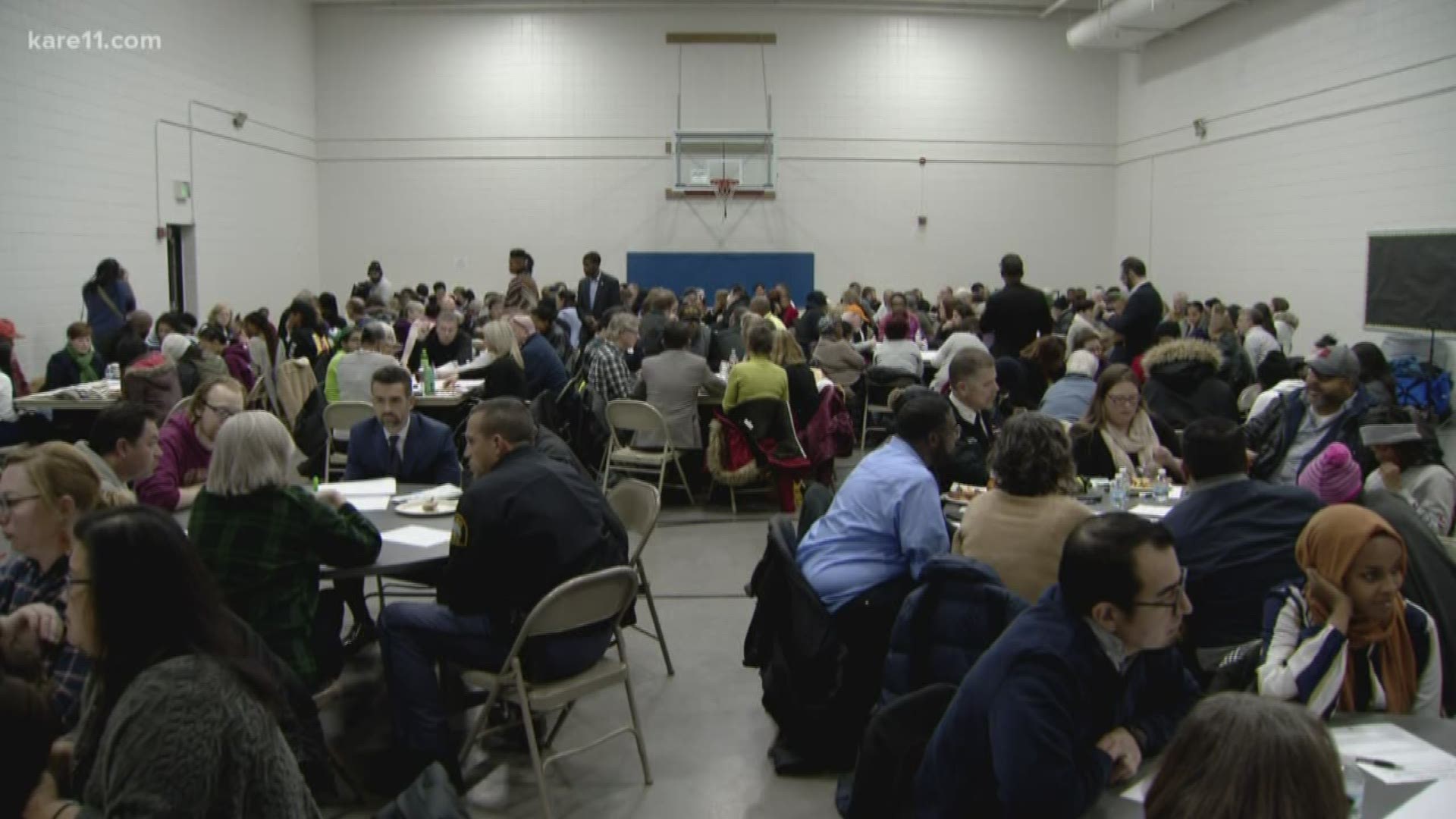ST PAUL, Minn. — People in the North End know the toll of gun violence far too deeply.
With St. Paul’s homicide totals at their highest in a decade, police have seen some of the shootings in 2019 concentrated in this neighborhood, just a mile from the State Capitol and two miles from downtown and City Hall.
That’s why, for his second safety meeting, Mayor Melvin Carter chose the Rice Recreation Center as the gathering place. It followed a similar format to last week, giving neighbors the chance to share their feelings and collaborate on potential solutions in small-group settings. Gun violence was at the forefront of everyone’s minds: Just blocks away, 48 hours earlier, gunshots had taken a man’s life at Rice and Wayzata streets. In September, a shooting in the same exact area left 18-year-old Raumez Ross dead.
A youth advocate named Aasiamarie, who attended Tuesday’s roundtable meeting, knew Ross and had tried to help him during a previous stint in prison.
“It was a total surprise,” she said. “As far as we knew, he was doing well. He had gotten a job. And the next thing I knew, he had passed.”
Ross’ death is symbolic of the larger issue – the one everyone is trying to fix, including Mayor Carter. On Tuesday, he reiterated his intention to bring a supplemental budget proposal to the table for public safety, which would be put toward the 2020 budget. Although Carter has not given exact details and cannot estimate a cost, he said he hopes to have a concrete proposal in front of the council by the end of November.
Carter said last month it will address engagement of at-risk youth, help for the homeless and mental health treatment, but he wants the series of public safety meetings to conclude before he makes an official proposal.
“I’m committed to not bringing a bunch of solutions that I’ve thought up in my own head, in my own office by myself,” Carter said, “but saying, we want to hear what community members have to say about this.”
During Tuesday’s small group discussion, many neighbors talked about how to deter young people in the community from turning to gangs or other dangerous activity. Dr. Tamara Mattison, an organizer of the meeting and executive director of the Dispute Resolution Center, said many kids in the community seem to lack direction and often have volatile home lives.
“We know a lot of kids, they just don’t have consistency,” Mattison said. “So if they can be part of more consistency than just gangs… I think that’ll improve what we’re doing.”

